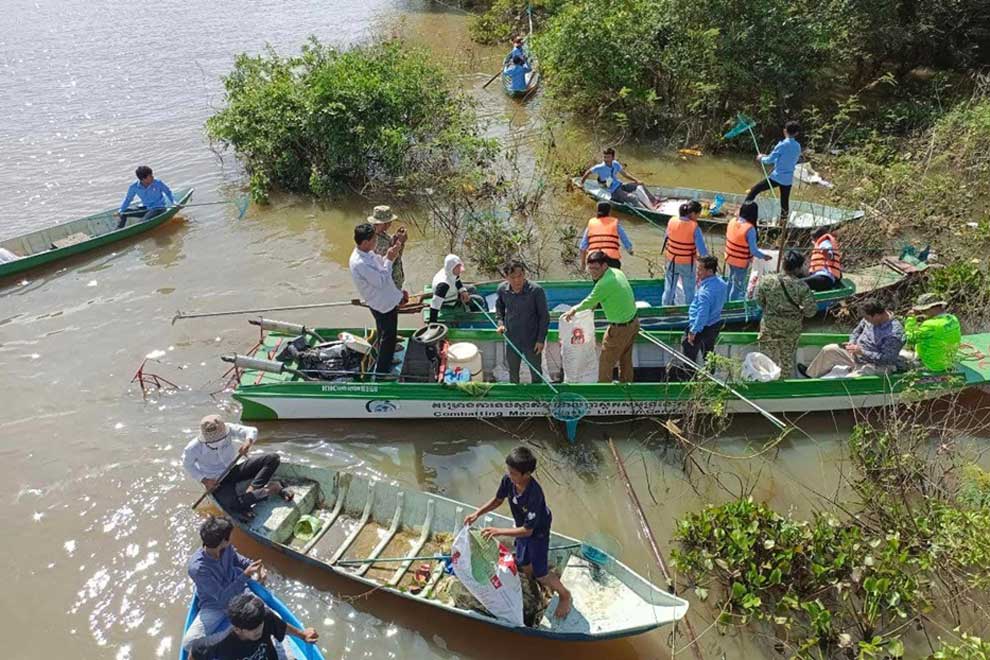
Environmental activists collect plastic waste on the Tonle Sap Lake in Siem Reap province’s Chong Khneas commune in 2022. MoE
Minister of Environment Eang Sophalleth has announced a March 1 clean-up campaign of the Tonle Sap Lake.
The campaign seeks to protect the precious fisheries resources of the lake, a major source of nutrition for Cambodians.
He made the announcement as he met with Eda Kraja, country manager for Cambodia-Laos of the UN Office for Project Services (UNOPS) on February 12, according to the ministry.
Sophalleth said the campaign will be launched on March 1.
“This campaign will build on the success of the first phase of our ‘Today I do not use plastic’ campaign, which has reached over four million people,” he explained.
He added that the ministry has succeeded in reducing plastic use, and encouraged many communities to store and separate their garbage, in order to keep their neighbourhoods clean.
“By working together, we will keep the ground, air and water of Cambodia clean. This will become a part of the heritage that we pass on to future generations, and it will spread to more countries in the region,” he said.
Kraja said the meeting was held to strengthen their cooperation, in line with the ministry’s Circular Strategy on Environment 2023-28.
She said she also wanted to gain a better understanding of the ministry’s priority tasks, in order to connect them with other global projects, including the Green Climate Fund (GCF), NDC partnership, the UN Environment Programme (UNEP) and the Copenhagen Climate Centre.
Sea Sophal, director of the NGO2 BambooShoot Foundation, said on February 13 that he has led over 20 villages in clean-up campaigns of the lake since 2018.
“I hope the launch of the minister’s campaign will support the work of local communities. I hope that when our next campaign wraps up in June, many environment ministry officials will have joined,” he added.
He expected that the ministry’s efforts would inspire more communities to join in, leading to an even larger reduction in the amount of plastic waste in and around the lake.
The ministry has previously explained that the cleanup of garbage and plastic is the responsibility of people from throughout the ASEAN region and the wider world, as the environment surrounds everybody and is boundless.






















